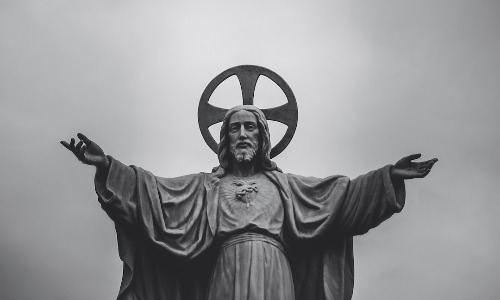In Genesis 48, we see the remarkable story of Jacob blessing his two grandsons, Ephraim and Manasseh. But to understand the significance of this chapter and its link to Messianic Jesus, let’s dive into the context.
At this point in the narrative, Jacob, also known as Israel, is nearing the end of his life. His son Joseph, whom he believed to be dead, had risen to a position of power in Egypt and had become a source of salvation for the Israelite people during a severe famine. After a joyful reunion, Jacob and his entire family relocate to Egypt, where they are graciously provided for by Pharaoh.
As Jacob senses that his death is approaching, he requests Joseph to bring his two sons before him. It’s important to note that Jacob’s blessing holds tremendous weight and significance. The blessings that he bestows upon his descendants determine their future roles and positions within the twelve tribes of Israel.
In Genesis 48:5-6, Jacob adopts Joseph’s sons as his own, essentially granting them an equal inheritance alongside his own sons. This is highly unusual, as typically, the firstborn son would receive the majority of the inheritance and blessings. By doing this, Jacob is establishing a unique destiny for Ephraim and Manasseh.
Now, the connection to Messianic Jesus becomes apparent when Jacob proceeds to bless Ephraim and Manasseh. In Genesis 48:14-16, Jacob prophetically crosses his hands, placing his right hand on Ephraim, the younger son, and his left hand on Manasseh, the firstborn. This act defies societal norms and reverses the expected order.
In this unconventional gesture, we find a foreshadowing of a significant principle that will play out throughout the biblical narrative: the lesser being exalted and the firstborn being replaced. This principle finds its ultimate fulfillment in Messianic Jesus.
Throughout Jesus’ earthly ministry, we see how he challenges conventional norms and societal expectations, often overturning them entirely. He consistently uplifts the marginalized, the outcast, and those considered “last” by society.
Just as Jacob crossed his hands to place the blessing on the younger son, Jesus consistently exalts those who are considered the least in society. He prioritizes the humble, the meek, and the broken-hearted.
Additionally, just as Manasseh, the firstborn, doesn’t receive the primary blessing, we see a parallel in the rejection of the religious leaders by Jesus. The Pharisees, who were supposed to be the spiritual leaders of their time, were replaced by Jesus, the true Messiah. Jesus exposes their hypocrisy and undermines their authority through his teachings and actions.
Jacob’s blessing in Genesis 48 further reveals the connection to Messianic Jesus when he declares in verse 19, “He, too, will become a people, and he too will become great. Nevertheless, his younger brother will be greater than he, and his descendants will become a group of nations.”
Here, Jacob prophesies that though Manasseh will become great, it is Ephraim, the younger brother, who will ultimately surpass him in greatness. This prophecy echoes the pattern of the Messiah, as Christ comes from the humble town of Bethlehem, from the lineage of David, a seemingly insignificant family among the Israelite tribes.
Through this unexpected lineage and fulfillment of prophecies, Jesus rises above human expectations and exalts the lowly. In his life, death, and resurrection, Jesus establishes a new order, a new covenant, where Gentiles and Jews alike are invited into the family of God, becoming part of a multitude of nations.
In conclusion, Genesis 48 not only showcases Jacob’s unique blessing upon Ephraim and Manasseh but also provides a profound foreshadowing of the Messianic Jesus. Through Jacob’s unconventional gestures and prophetic declarations, we witness the reversal of societal norms and expectation, mirroring Jesus’ own ministry on earth.
Just as Ephraim, the younger son, is exalted above Manasseh, the firstborn, Jesus exalts the humble and marginalized, challenging the religious norms of his time. The blessings and prophecies given in Genesis 48 serve as a reminder that the story of Jesus is woven into the very fabric of the Old Testament, fulfilling the promises established through the patriarchs and pointed towards the ultimate blessing, redemption, and salvation found in the person of Messianic Jesus.
#Genesis48 #MessianicJesus #unconventionalblessings #reversalofsocietalnorms #propheticdeclarations #foreshadowing #exaltationofthehumble #rejectionofreligiousnorms #fulfillmentofprophecies #neworder #newcovenant #fabricoftheOldTestament #ultimateblessing #redemption #salvation #Jacob’suniqueblessing #EphraimandManasseh #Jesus’exaltation


